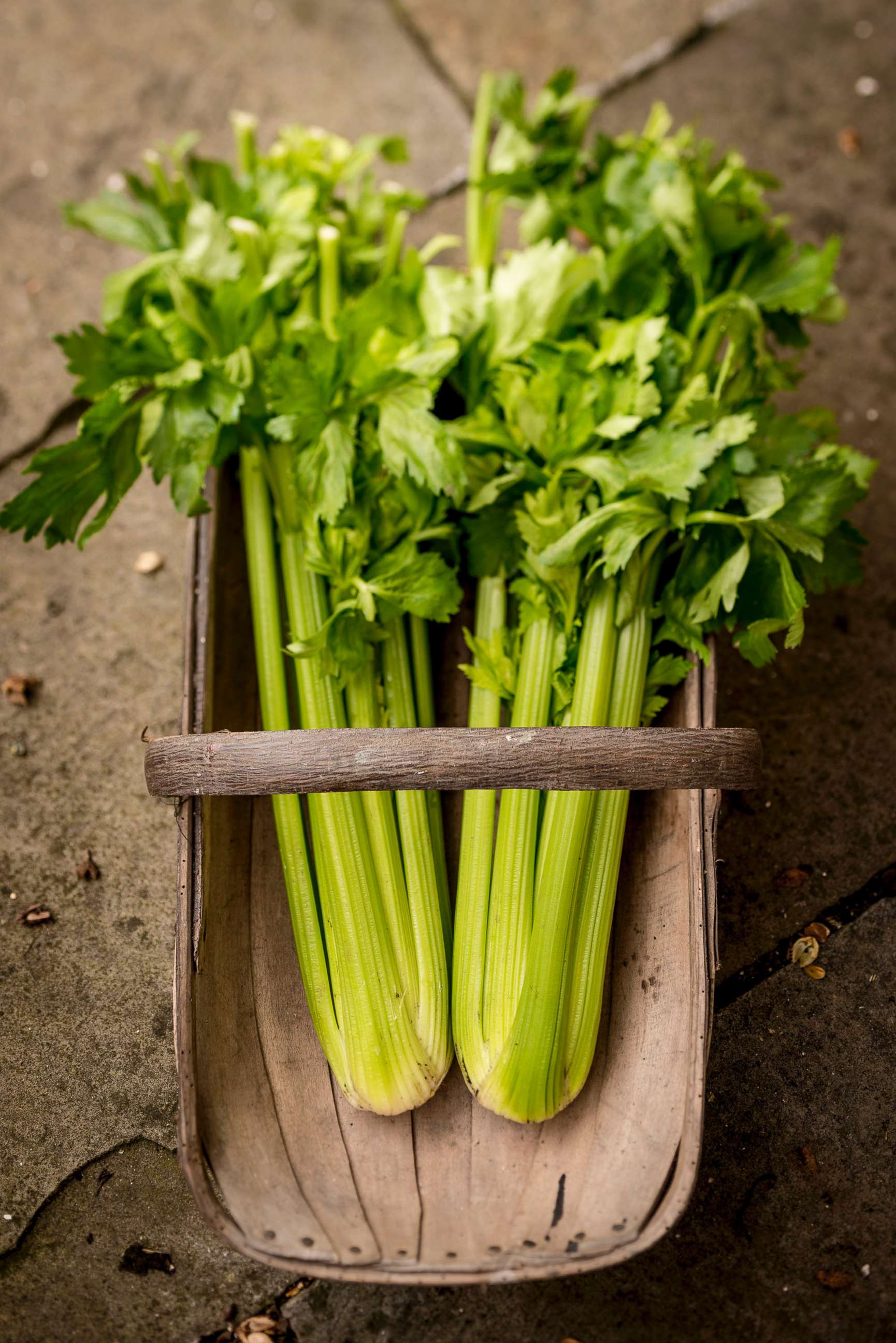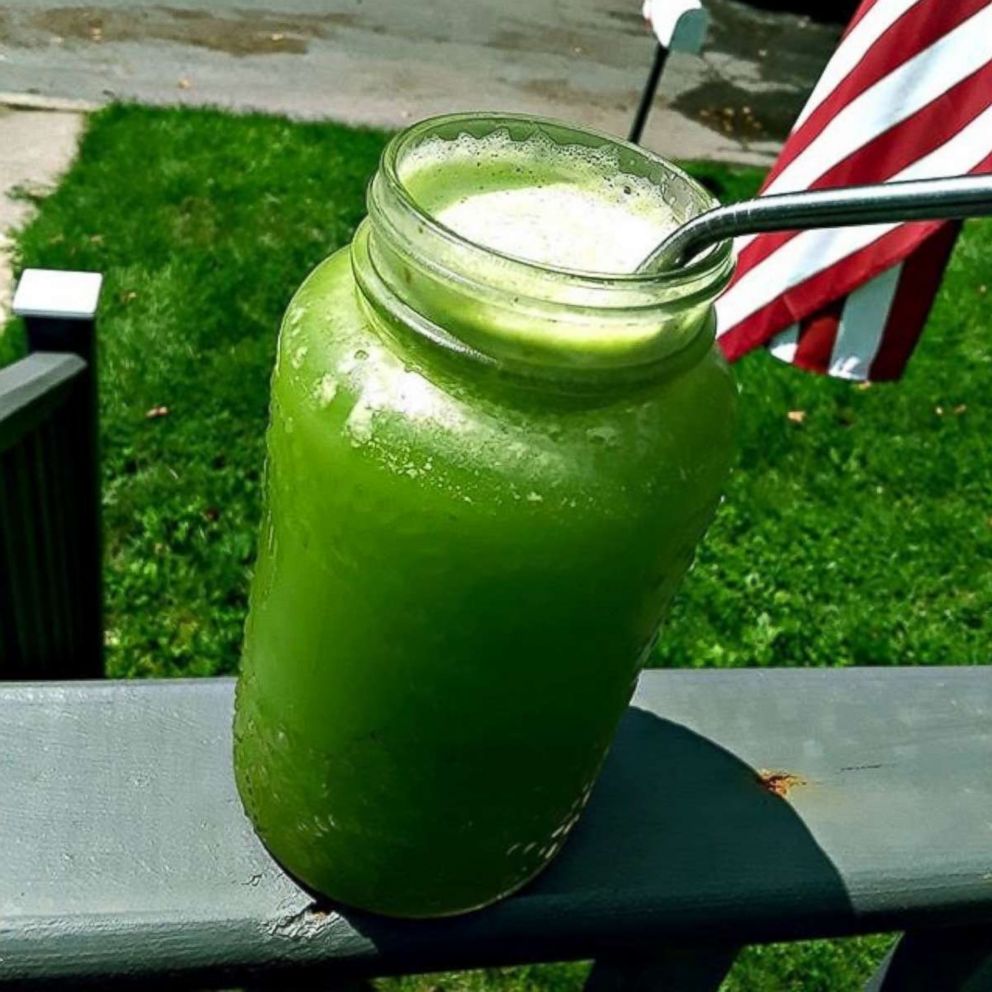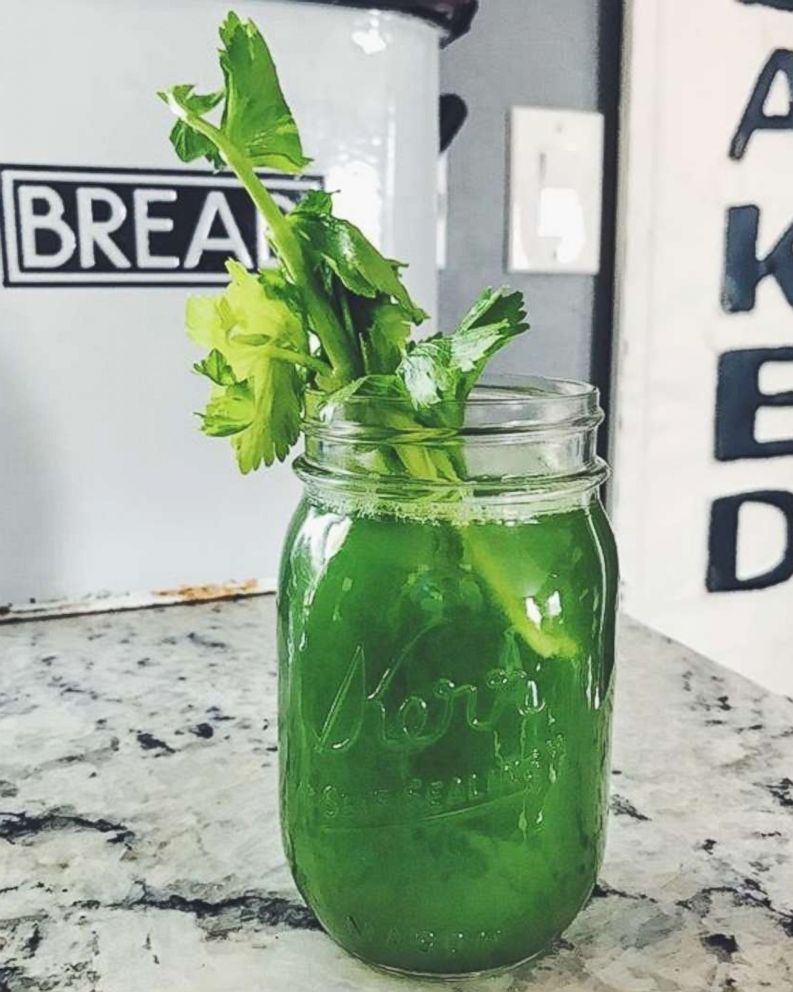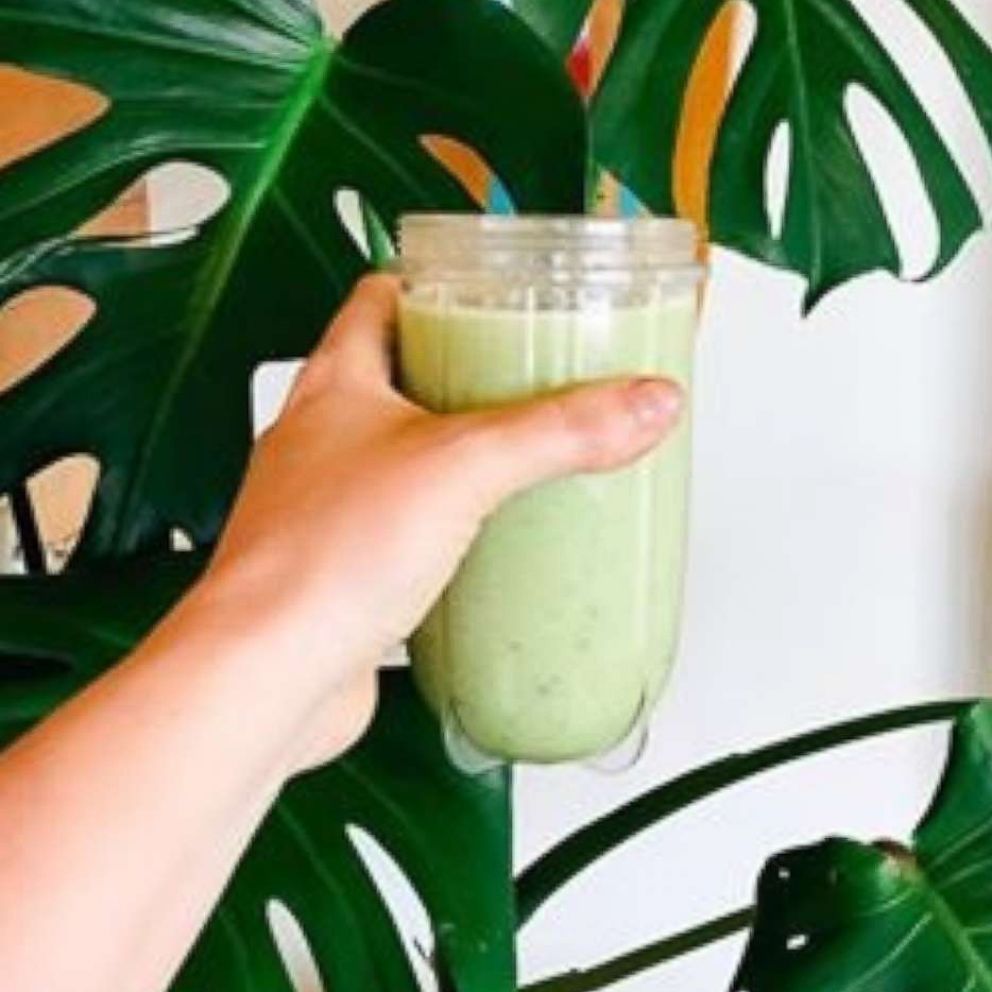Celery juice is the latest wellness trend: Is it one you should follow?
Nutritionists weigh in on the buzz around celery juice and its benefits.
Supermodel Miranda Kerr says she drinks it every morning and actress Busy Philipps has talked about it with her 1.1 million Instagram followers.
Speaking of Instagram, you’ve probably seen it all over your feed.
It is celery juice, the latest wellness trend gaining buzz on social media and with celebrities and health gurus.
“When juicing came back [in trend], it was all about fruit. Now with carb and sugar phobia, I think vegetable juices have taken hold again,” said Cynthia Sass, RD, CSSD, a New York City and Los Angeles based performance dietitian. “Celery does check several boxes in that it’s green, low-calorie, readily-available, has some research behind it and it seems new.”
In addition to being low in calories, celery provides fiber, vitamin K, folate, potassium, and over a dozen types of antioxidants, according to Sass. It also contains natural substances that have been shown to help optimize circulation and boost endurance and enhance strength training when consumed pre-workout.

Celery also contains anti-inflammatory substances that are thought to help support a healthy gut and protect against cellular damage that can lead to premature aging and disease, noted Sass.
So why aren't we all guzzling celery juice -- made in either a juicer or blender with just celery and water -- all the time?
The human research on celery juice is "scant," according to Sass.
"We don’t have a robust picture of its benefits like we do for something like say, avocado or extra virgin olive oil," she said. "This also means we don’t know the optimal amount or frequency to consume, the potential risks for certain people, and possible interactions with medications and supplements."

She continued, "For example, allergic reactions are possible, especially for people sensitive to birch, dandelion, and other plants. Celery juice may also increase sensitivity to sunlight."
Sass's take on the wellness trend is that celery juice is fine, in moderation, as part of an "overall whole foods based eating portfolio."
"It’s fine to drink it daily, just be sure not to overdo it, and mix it up by consuming other green veggies and various colors of produce, too," she said. "In other words, if you sip celery juice in the morning, you haven’t satisfied your vegetable quota for the day."
When it comes to variety, mixing up the vegetables you eat, or drink, does a body good, according to Sass. Celery is not any better or worse than other buzzy vegetables like kale and spinach, just packed with different nutrients and antioxidants.

"When you eat the same few veggies over and over you miss out on the unique nutrients and other protective compounds found in the plants you aren’t eating," Sass said. "Research backs that variety may even trump quantity when it comes to disease protection, but obviously the ultimate goal is to eat enough produce and mix up the types."
The current recommendation for adults is a minimum of five servings, or five cups, of vegetables a day.
Drinking celery as a juice can help you pack in more servings of celery at a time but does not provide any more nutritional benefits than just eating raw celery, according to Sass.

In fact, there is research in other fruits and vegetables that consumption of them in raw-form versus juice-form may be preferable.
Juicing tends to remove a lot of the fiber content in fruits and vegetables, which helps to lower cholesterol and regulate digestion, and may also remove a lot of the nutritional content, according to Dr. Ryan Guinness, an internal and preventive resident physician, currently working in ABC News' medical unit.
"I think the general consensus among the medical community, however, is that consuming fruits and vegetables in juice-form is still better than not consuming them at all," he said.
If you find the taste of celery juice hard to get used to, flavorings like lemon or lime or ginger root can pack a flavor punch without changing the nutritional or caloric values.
If you really don't like the taste of celery juice but still want the benefits, throw it in a smoothie.
Here is a favorite recipe from Sass.
Cynthia Sass smoothie recipe
Ingredients
1/2 cup organic celery juice
1/2 cup chopped kale
1 small frozen banana
1/c frozen mango
1/2 ripe avocado
1 scoop pea protein powder
1 tbsp fresh-squeezed lime juice
1-inch cube fresh ginger root
3 fresh organic mint leaves
Directions
Add ingredients to a blender and blend until smooth.




